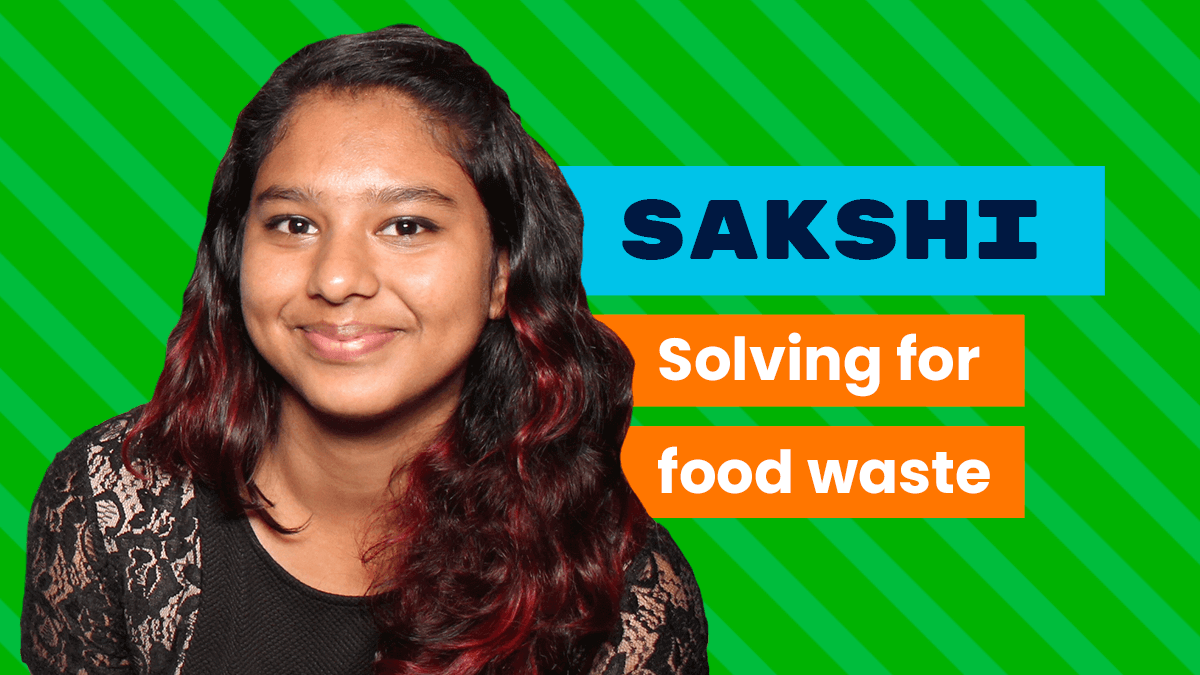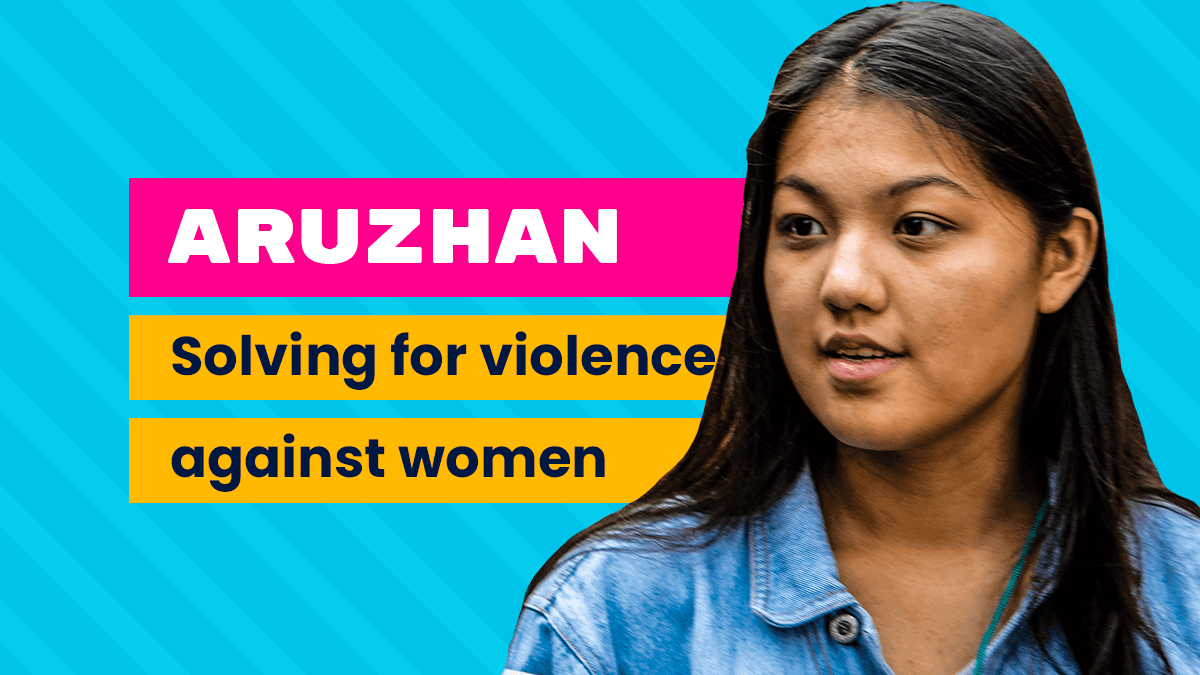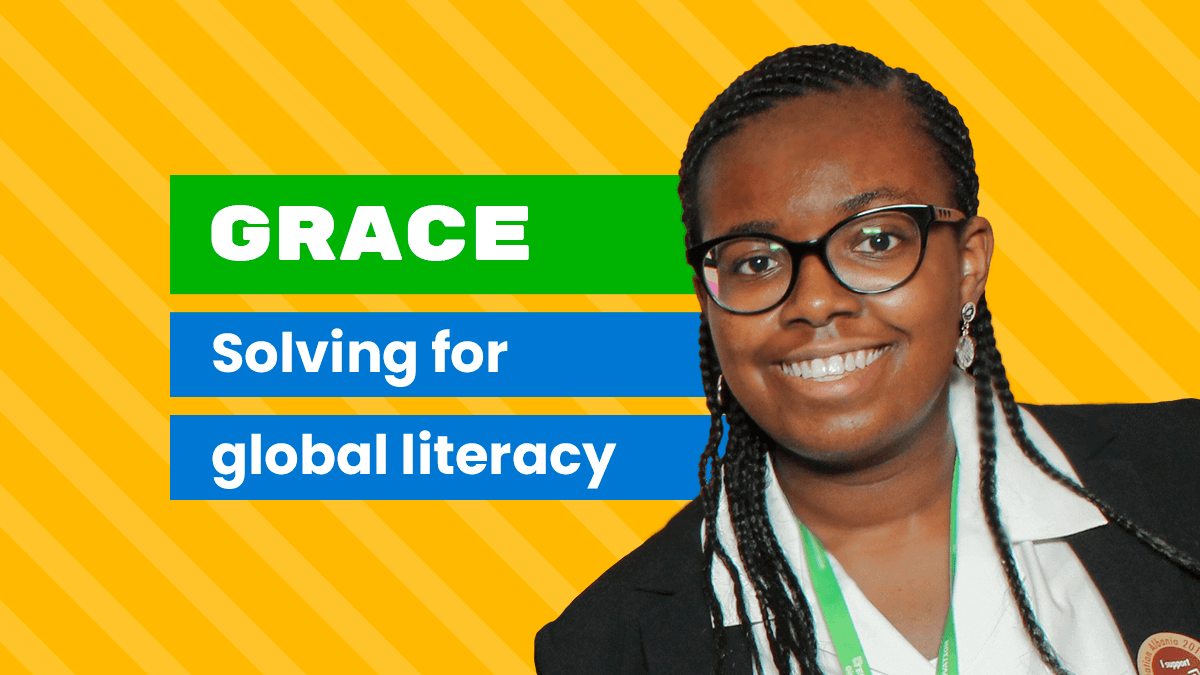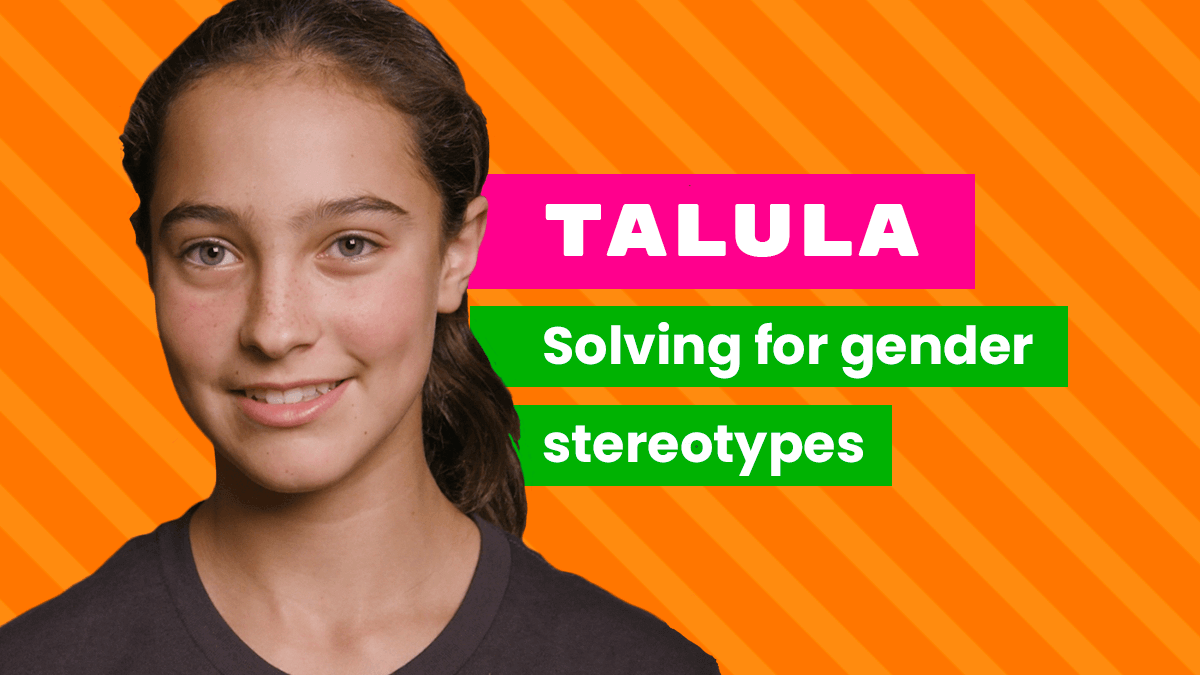These girls are Global Problem Solvers taking on big problems.
We’re continuing to put the spotlight on girls, families, and young adults making real changes in their communities, and today we want to introduce you to five incredible young women using technology to help their communities. Fighting problems ranging from assault and abduction to opioid addiction and low literacy rates, these innovators are building a better world. As th world strives to achieve the UN’s Sustainable Development Goals within the next ten years, these young people are fighting for further and faster progress on those goals.
Get to know them.
Sakshi – fighting for a more sustainable community
The Farm Theory (India)
Sakshi launched a startup to reduce food waste and raise income for farmers in Karnataka, India. The Farm Theory creates an innovative, sustainable resource chain for farmers. Sakshi and her team set up collection centers in the farming village of Karnataka where The Farm Theory purchases farmers’ entire crops, including produce that would otherwise be categorized as ugly or waste produce – netting the farmers a larger profit than they would earn in a traditional market. From there, The Farm Theory employs local women and young people to grade vegetables (including the uglier specimens!) and transport the categorized produce to warehouses in Bangalore. Once in Bangalore, the produce is brought to three Farm Theory storefronts or sold to local restaurants, where customers and cooks are happy to accept the less than perfectly beautiful food items.
Global food waste generates 3.3 billion tons of carbon dioxide annually – a significant contributing factor of climate change. But Sakshi and The Farm Theory team are reducing food waste, supporting rural farmers, and employing local members of the community in a powerful, sustainable business and tackling a piece of large, complicated puzzle of climate change. Together Sakshi, her team, and the communities she works with are building a less wasteful, more equitable future.
Aruzhan – standing up for women’s safety
QamCare (Kazakhstan)
Aruzhan founded QamCare, an SOS app that has already helped rescue a kidnapping victim in Kazakhstan. Aruzhan and her Technovation Girls team developed a prototype of QamCare in 2017 and won first place for their innovative idea. Aruzhan and her teammates continued to work on the app, bringing it to market in 2018 – and earlier this year, QamCare helped rescue a kidnapping victim. Human trafficking is a pervasive problem around the world, disproportionately affecting women and girls, which makes walking the streets to commute to work or school or to run errands, or even just be a member of a community, very dangerous. It’s more dangerous when local laws fail to protect women – and in 2014, Kazakhstan did not report any laws against sexual violence to the World Health Organization. Aruzhan and her team are stepping up to fill in the gaps created by local lawmakers, and fighting for a safer, fairer future for girls and women in their community, and around the world.
Grace Sodunke – fighting for a more literate world
LexisLearn (United Kingdom)
As of 2018, there are 12 million more illiterate girls than boys worldwide. Grace and her team – Vision 101 – are pushing back against that with their app LexisLearn. Inspired by their own experience with their peers – 71% of teenagers use multiple social media platforms, whereas only 53% of 13-year-olds and 40% of 17 year-olds read at least once a week – Grace and her team created a tool that meets students where they spend their time – on their phones. LexisLearn tracks users’ reading and encourages them to develop a daily reading habit. The trends Grace and her team mates noticed among their own friends are part of a larger global problem – globally, more than 55% of primary and secondary school students lacked minimum proficiency in reading and mathematics in 2015.
Grace is now a Technovation Student Ambassador, where she encourages and supports girls to pursue their own creative technological solutions to community problems, further showcasing her commitment to educating and preparing her peers for the future.
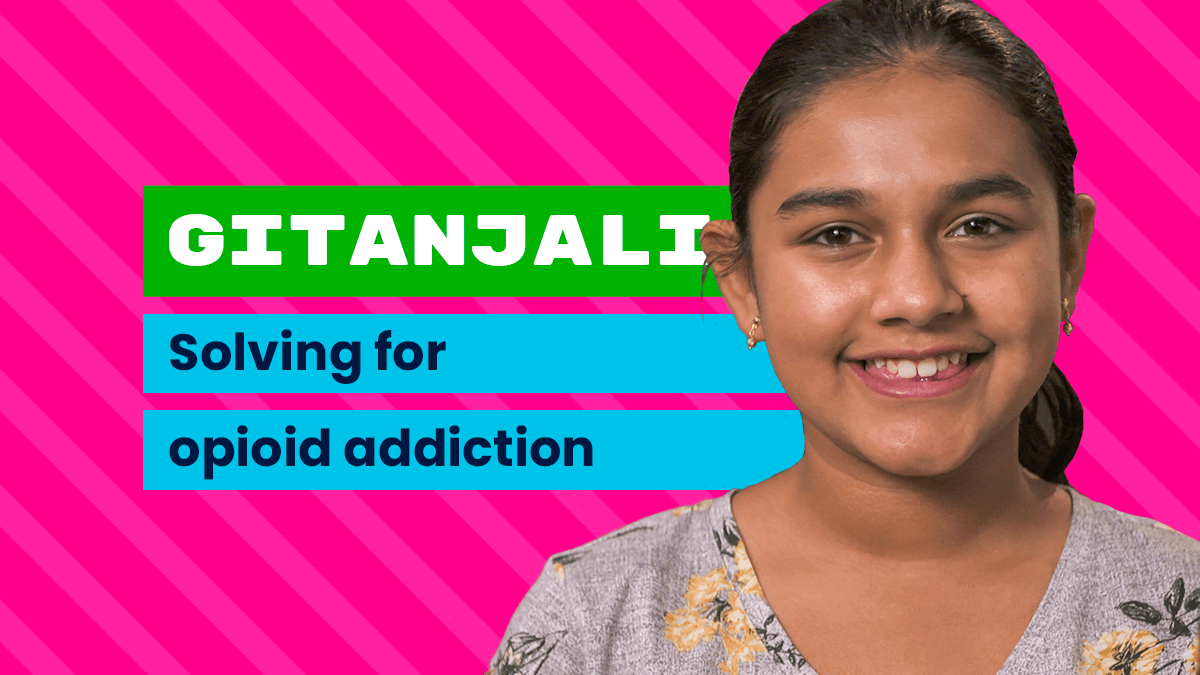
Gitanjali – Fighting the opioid epidemic with AI
Epione – (US)
Overdoses involving opioids killed more than 47,000 people in 2017, and opioids were responsible for about two-thirds of all drug-related deaths in 2017. Such a powerful and growing problem can feel overwhelming, but 13 year-old Gitanjali is stepping forward to find a solution. Her app Epione is an AI-powered medical device designed for physicians and those struggling with opioid addiction. Epione helps diagnose opioid addiction at an early stage and monitor drug addiction.
A 2019 Technovation Girls finalist, Gitanjali was inspired in part by a family member’s addiction to opioids after a car crash as well as by the observable increase in addiction in her community. Her innovative approach and long-term vision – she readily acknowledges that her research likely will take another 2 years before the app is ready to bring to market – assure us that we will be hearing much more from Gitanjali in years to come.
Talula – Fighting gender stereotypes and their long-term effects
Go Girl – (US)
Talula’s Technovation team
Gender inequality and discrimination are pressing global issues – girls and women aged 15-29 are 3 times more likely than male youth to not be enrolled in school or other educational opportunities. Talula, a teenager from the United States, and her teammates developed an app to combat stereotypes and promote equality. Go Girl is a game that showcases the numerous gender-specific challenges girls face during their adolescence. The game addresses education disparities and gender biases, as well as specific issues like forced marriage, teenage pregnancy, and high school drop-out rates. Targeted at 13-18 year-old girls, Go Girl is a gamified representation of these challenges, where the user plays as a teenage girl trying to make her way to school while avoiding or overcoming obstacles. Talula and her teammates took notice of the challenges their peers were facing, as well as girls around the world, and took on the challenge of educating and empowering girls to build a better future that’s more equitable for girls and women.


